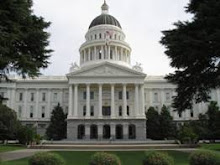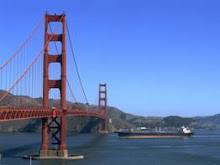On March 27, 2009, the Second Appellate District, California Court of Appeal, affirmed a ruling in favor of Reins International California Inc., holding participants in tip pooling need not be restricted to staff who provide direct table service to patrons.
The Los Angeles County Superior Court case was filed in 2007 by waiter Brad Etheridge on behalf of a class of similar Reins' servers. Etheridge alleged the restaurant's tip-pooling practice violated the California Labor Code and constituted an unfair business practice because it requiresd waiters to give a portion of guest tips to bartenders, dishwashers, and other kitchen staff, who provide no direct table service to customers. Reins, which operates several restaurants in California, won dismissal of the suit after arguing to the trial court that state law did not limit tip sharing to workers who provide direct table service and that a tip pool could include any number of employees, so long as the tips are not shared with management. Etheridge appealed, arguing the appellate court's 1990 Leighton v. Old Heidelberg Ltd. ruling foreclosed a tip pool that included employees not providing "direct table service."
The appeals court majority found Etheridge's reading of Leighton as "too narrow," holding, "[t]he Leighton court concluded that a mandatory tip pool is supported by 'common sense and fairness and protects the public, the employees, and the restaurant employer.' These policy reasons extend to mandatory tip pools which include employees who do not provide direct table service, but participate in the chain of service."
The court's opinion was not unanimous, with one dissenting judge holding that any employer-mandated tip-sharing policy directly violated California's labor laws, finding, "[b]ecause Section 351 (of the Labor Code) guarantees that the gratuity is the 'sole' property of the employee or employees for whom it was left, Section 351 clearly prohibits the employer from appropriating any portion of the server's gratuity and diverting it to other employees." Judge P.J. Klein said he could not agree with the majority in their decision, stating that, "[t]he instant majority's extension of Leighton to include in the tip pool any employees who 'contribute to a patron's service' or who 'participate in the chain of service' is unwarranted and simply compounds the error made by the Leighton majority in the first instance," and added that the state's Supreme Court should weigh in on the matter and clarify the issue.
Showing posts with label Tips. Show all posts
Showing posts with label Tips. Show all posts
Thursday, April 02, 2009
Tuesday, February 27, 2007
The U.S. Department of Labor Determines Restaurants Cannot Deduct for Uniform Cleaning
The United Stated Department of Labor (“DOL”) recently issued a Wage and Hour Opinion Letter, FLSA 2006-21, (June 9, 2006), prohibiting restaurant owners from deducting the costs associated with laundering uniforms from staffs’ wages. The opinion letter stated that “no portion of an employee’s tips may be kicked back to the employer to cover the cost of uniform laundering,” and “even if the tips actually received exceed the maximum tip credit the employer needs to claim toward payment of the minimum wage, these excess tips are not deemed to be wages for purposes of the FLSA.”
The DOL further stated “A policy that employees must wear clean uniforms while on duty and the assurance that servers will always appear in clean, freshly pressed uniform tops, is primarily a convenience and benefit to the employer. As such, the cost of the laundering and pressing of the garment is a cost of doing business that may not be imposed on the employees if doing so would reduce their wages below minimum wage.”
While the DOL Opinion Letter specifically applies to restaurants, there is likely no reason the same standard would not be applied by the government to different work environments, such as security personnel, maintenance workers, or other similar occupations. Employers should be mindful to review their policies regarding uniforms in light of the DOL’s latest Opinion Letter.
The United Stated Department of Labor (“DOL”) recently issued a Wage and Hour Opinion Letter, FLSA 2006-21, (June 9, 2006), prohibiting restaurant owners from deducting the costs associated with laundering uniforms from staffs’ wages. The opinion letter stated that “no portion of an employee’s tips may be kicked back to the employer to cover the cost of uniform laundering,” and “even if the tips actually received exceed the maximum tip credit the employer needs to claim toward payment of the minimum wage, these excess tips are not deemed to be wages for purposes of the FLSA.”
The DOL further stated “A policy that employees must wear clean uniforms while on duty and the assurance that servers will always appear in clean, freshly pressed uniform tops, is primarily a convenience and benefit to the employer. As such, the cost of the laundering and pressing of the garment is a cost of doing business that may not be imposed on the employees if doing so would reduce their wages below minimum wage.”
While the DOL Opinion Letter specifically applies to restaurants, there is likely no reason the same standard would not be applied by the government to different work environments, such as security personnel, maintenance workers, or other similar occupations. Employers should be mindful to review their policies regarding uniforms in light of the DOL’s latest Opinion Letter.
Subscribe to:
Posts (Atom)








